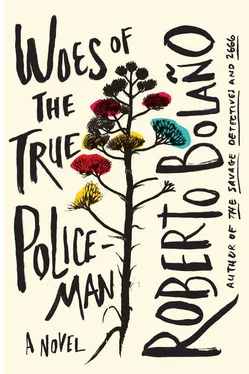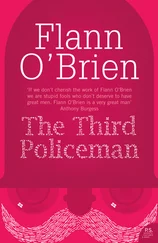Two Arcimboldi Novels Read in Three Days
The Librarian (Gallimard, 1966, 185 pages)
The protagonist’s name is Jean Marchand. He’s young, from a good family, and wants to be a writer. He has a manuscript, The Librarian , on which he’s been working for a long time. A publishing house, recognizable as Gallimard, hires him as a reader. Overnight, Marchand finds himself buried in hundreds of unpublished novels. First he decides to set his book aside for a while. Then he decides to give up his literary aspirations (the practice of writing, if not his passion for it) to devote himself to the careers of other writers. He sees himself as a doctor at a leper colony in India, a monk pledged to a higher cause.
He reads manuscripts, has long discussions with writers, gives them advice, calls them on the phone, inquires after their health, lends them money. Soon there’s a group of about ten whom he can consider his own, whose novels he’s been involved with. Some — a few — find publishers. Parties are thrown and plans made. The rest come imperceptibly to swell the ranks of a collection of unpublished manuscripts guarded jealously by Marchand. Among these manuscripts by others is his own novel, The Librarian , unfinished and perfectly typed, neatly bound, a beauty among grubby, smudged, crumpled, dirty originals; a lady cat among tomcats. Marchand dreams that in one magical and endless night the rejected manuscripts make love every way possible with his abandoned manuscript: they sodomize it, rape it orally and genitally, come in its hair, on its body, in its ears, in its armpits, etc., but when morning comes his manuscript hasn’t been fertilized. It’s sterile. In that sterility, Marchand believes, lies its uniqueness, its magnetism. He also dreams that he’s the leader of a gang that scavenges metal from mines and that the mountain they must plunder by the light of the moon is hollow, empty. His prestige at the publishing house grows, as it must. He has recommended the publication of a young writer who is the hit of the season. Marchand knows that for every writer he allows to breathe, there are five who endure with him (with the best Marchand, the most improbable) the airlessness and darkness of their labyrinthine works.
Eventually, one of his writers kills himself. Another turns to journalism. Another, of independent means, writes a second and a third novel that only Marchand will read and praise. Another is published by a small regional press. Another becomes an encyclopedia salesman. By this point Marchand has abandoned any scruples, any hesitation: not only does he maintain steady relationships with the writers but in more than one case he has become acquainted with their families (dear M. Marchand), their girlfriends and wives, their generous grandmothers, their best friends. In his imagination, his manuscript lives on in the novels that he stores at his house: the character of The Librarian enters the lives of the other characters — the characters from the other books — just as he works his way into the lives of the writers. Of the first ten, only one takes the tempestuous world of publishing by storm (and even so, Marchand controls him to the point of making him write stories that only he will read, rewrite novels whose discarded fragments only he will possess); as the years go by, the others find new interests, stop writing, readapt themselves, grow up. But the flow of new manuscripts is unceasing: Marchand takes on another ten writers, then another ten, and so on until his library is filled with manuscripts — strange ones, bad ones sometimes; surprising ones, delightful ones, dark ones sometimes — that he personally takes care to see are rejected by publishers. There comes a moment when Marchand reads only unpublished works: the novel gives brief plot summaries of about forty.
Marchand has dreams: a great fire in his building, described by Arcimboldi with the precision of an architect and a firefighter; the appearance of a thundering Messiah who publishes all the filched manuscripts and condemns him to burn in hell, the Librarian’s greatest fear; the hatching of a generation of novelists who are as quick as lightning and whom he’ll coddle and lead, step by step, into his library of rejected writers. The novel ends abruptly. Marchand dies of a heart attack. Present at his burial, along with the employees of the publishing house, are many former writers. A moving truck transports his collection of manuscripts to a warehouse. Arcimboldi describes the warehouse in great detail.
Racine (Gallimard, 1979, 140 pages)
A fragmented biography, divided into cold and seemingly unconnected bits; perhaps a collection of prose poems, as one critic notes. Scenes from the life of Racine, following one after another like closed and stifling rooms: the death of the girl Jeanne-Thérèse Olivier, recounted with evident pain despite the chilliness — the purported objectivity — of the prose; the death of Jeanne Sconin, mother of the poet, two years after the poet’s birth; the death of Marquise Du Parc, the poet’s lover, in the year of the publication of Andromaque ; work with Boileau, the head of Boileau, his profile; friendship with Molière and their subsequent falling-out; the death of Jean Racine, the poet’s father; early mornings in 1644 when the poet was a five-year-old orphan living with his grandparents; the unfinished and lost tragedies, the incalculable spent energy; life in Uzès, the birds of Languedoc, the poet’s uncle Antoine Sconin; the lie that surrounds him like a barbed and dirty cloud; marriage to Catherine de Romanet; the accusation that he poisoned Marquise Du Parc for her jewels; the study of Latin; the premiere of Andromaque with Marquise Du Parc in the leading role; the period when Marquise Du Parc worked with Molière; La Champmeslé’s bed; children; life in Versailles; the great blocks of ice of the seventeenth century; the music of Lully and Port-Royal.
Two Arcimboldi Novels Read in Seven Days
Sam O’Rourke’s Search (Gallimard, 1960, 230 pages)
At first, this sad and rambling novel most resembles a plagiarized version of James Hadley Chase’s No Orchids for Miss Blandish , or at best an adaptation. Despite the unremitting description of objects (beds, curtains, camp beds, guns, chairs, boxes of crackers, bottles, plates), very much in the style of the nouveau roman , the arc of James Hadley Chase’s story impresses itself with great force: some small-time crooks kidnap the daughter of a tycoon; before long, the bungling kidnappers lose their captive to another gang; the brains behind the new gang is a fat, surly woman (Mona); Mona’s deputies are her son (Chuck) and her godson (Jim, a.k.a. Kansas Jim). That same night — the night of the double kidnapping — we learn that Chuck is a dangerous psychopath and that he’s about to fall for the beautiful heiress, and that Jim is handsome and clever and hates the heiress with a passion: his reasons, explained at great length, fluctuate between a very personal sense of class struggle and an appreciation of the charms and natural camaraderie of chorus girls, whom he clearly prefers.
The rest of the gang consists of four drab and ruthless individuals: a black man, two ex-farmers, and a fifty-five-year-old Polish dancer. The daily existence of these characters is something that seems to fascinate Arcimboldi: their routines, their hideouts, their interests, their obsessions, the ease with which they “slide through cracks in time.” We soon learn all kinds of things about them: their favorite foods, their dreams, their favorite subjects of conversation, their hopes, their dark loves, their dark fates (cf. Victor Hugo, Les Miserables ). Chuck and the kidnapped girl are like a kind of diabolical Romeo and Juliet, with Mona and the Pole (who sleep together once every two weeks, though almost without touching, masturbating each other from opposite sides of the bed with hands like insect antennae) as their antithesis: the old couple has attained or is about to attain wisdom, the state of a celestial Romeo and Juliet. Standing between the two couples in a space where everything is antagonism are the godson, the black man, sometimes the two ex-farmers: they are the spectators of love, the chorus that gives life and takes it away, that licenses it.
Читать дальше








![О Генри - Бляха полицейского О’Руна [The Badge of Policeman O'Roon]](/books/405347/o-genri-blyaha-policejskogo-o-runa-the-badge-of-po-thumb.webp)



